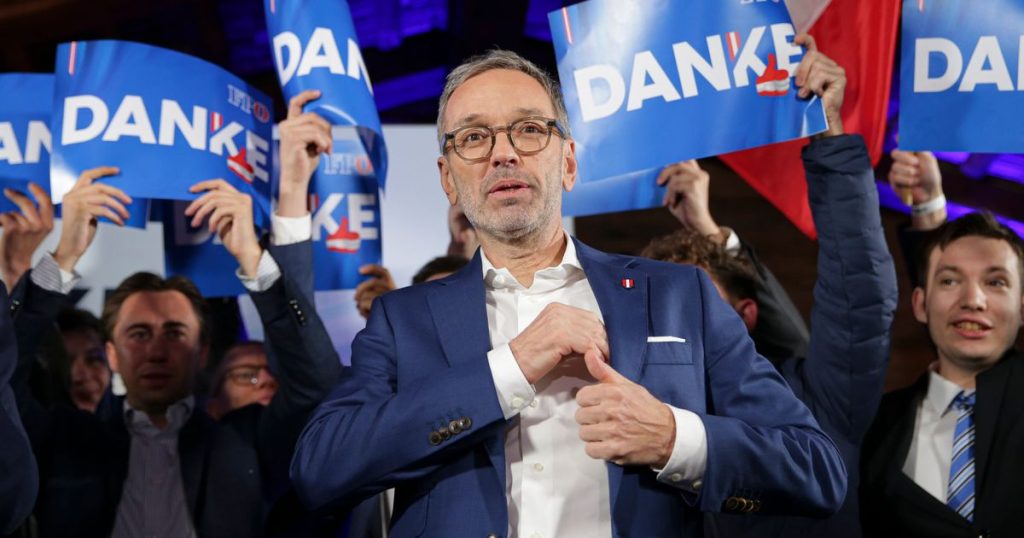The Freedom Party in Austria emerged as the front-runner in the recent national parliamentary election, marking the first far-right win in the country since World War II. Led by Herbert Kickl, the party garnered significant support from voters concerned about immigration, inflation, Ukraine, and other issues. However, forming a government remained uncertain due to the need for a coalition partner to secure a parliamentary majority. Kickl, who aims to become chancellor, faced opposition from rival parties who stated they would not work with him in government. The Freedom Party’s platform, titled “Fortress Austria,” focuses on remigration, border control, and opposing sanctions against Russia and Western military aid to Ukraine.
Chancellor Karl Nehammer’s Austrian People’s Party trailed behind the Freedom Party in the election, losing its majority in the lower house of parliament along with its coalition partner, the environmentalist Greens. Nehammer, who expressed disappointment at missing out on first place, reiterated his stance on not forming a coalition with Kickl. He highlighted his party’s resilience in bouncing back from lower poll ratings. The Social Democrats, led by Andreas Babler, positioned themselves as opposing the far-right and ruled out governing with Kickl, labeling him a threat to democracy.
Kickl’s success in the election marks a significant turnaround for the Freedom Party since the 2019 parliamentary election. The party’s projected results would be its best yet in a national parliamentary election, surpassing its previous record in 1999. In contrast, Nehammer’s People’s Party saw a decline in popularity compared to the previous election, attributed in part to crises such as the COVID-19 pandemic and Russia’s invasion of Ukraine. The government’s handling of the pandemic, including a short-lived vaccine mandate, and recent flooding caused by Storm Boris also impacted public opinion.
The landscape for forming a government in Austria remains uncertain, with the People’s Party holding the key to any potential administration. Nehammer ruled out governing with Kickl due to concerns about national security, but did not discount a coalition with the Freedom Party itself, contingent on Kickl not holding a government position. An alternative option could be an alliance between the People’s Party and the Social Democrats, with the liberal Neos potentially joining as well. Around 300 protesters gathered outside the parliament building in Vienna, denouncing Kickl with placards labeling him as a Nazi.
Overall, the outcome of the election indicates a shift towards far-right politics in Austria, with the Freedom Party making significant gains based on voter concerns about various issues. The formation of a government amidst these results poses challenges for traditional parties like the People’s Party and Social Democrats, who must navigate coalition dynamics and public sentiment. The future direction of Austrian politics remains uncertain as parties negotiate potential alliances and policies in response to the election outcome.












